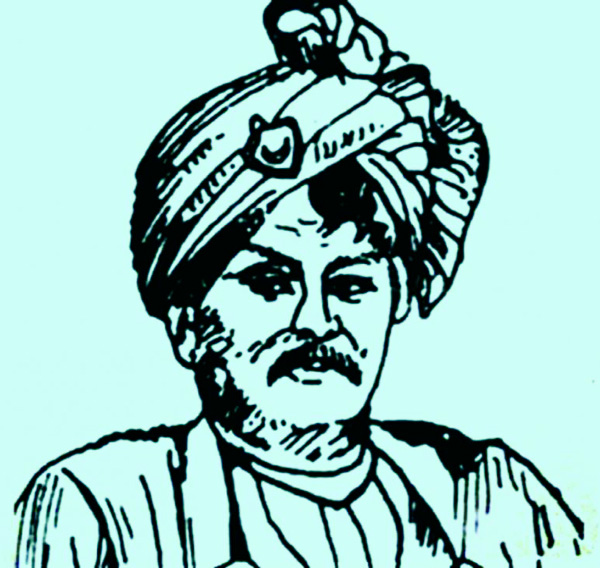
Wakil Ahmed :
Mukunda Das’s (1878-1934) original name was Yajneswar. But later it was changed to Mukunda Das after being initiated by Ramananda.
Mukunda Das’s grandfather was a boatman and his father, Gurudayal, worked at the District Court in Barisal where they finally settled. Mukunda Das studied at Barisal Zila School. When he was 19, he joined a Kirtan party. Subsequently, he formed his own troupe and devoted himself to music.
Mukunda Das made reputation for himself in writing songs on Swadeshi movement and Kirtan. He was initiated into Swadeshi movement by Aswini Kumar Datta of Barisal. He also wrote nationalist plays. His songs were published in a magazine called Barishal Hitoysi (Friend of Barisal). A collection of his songs was published as Matripuja (Worship of Mother, 1908). In his songs Mukunda Das called for the boycott of foreign goods and described the oppression by the British in simple, but attractive language. Enraged by his songs like Chhilo dhan gola bhora/shveto indure korlo sara (Granaries filled with rice/were destroyed by white mice), the British government put him into prison for about three years.
During the Non-Cooperation Movement in 1922 and the Civil Disobedience Movement in 1930, Mukunda Das continued to inspire people with his songs and plays. He was referred to as a Charon Kobi, or bard, by Rabindranath Tagore and Kazi Nazrul Islam.
His collections of writings include Sadhonsongeet (Songs of devotion), Polliseba (Village welfare), Brohmocharini (Follower of brohmochoryo), Poth (Roads), Sathi (Companion), Somaj (Society), Kormoksetro (The world), etc. Some of these are posthumous publications.
Mukunda Das was awarded various medals as well as other prizes.
(Source: http://en.banglapedia.org)
Mukunda Das’s (1878-1934) original name was Yajneswar. But later it was changed to Mukunda Das after being initiated by Ramananda.
Mukunda Das’s grandfather was a boatman and his father, Gurudayal, worked at the District Court in Barisal where they finally settled. Mukunda Das studied at Barisal Zila School. When he was 19, he joined a Kirtan party. Subsequently, he formed his own troupe and devoted himself to music.
Mukunda Das made reputation for himself in writing songs on Swadeshi movement and Kirtan. He was initiated into Swadeshi movement by Aswini Kumar Datta of Barisal. He also wrote nationalist plays. His songs were published in a magazine called Barishal Hitoysi (Friend of Barisal). A collection of his songs was published as Matripuja (Worship of Mother, 1908). In his songs Mukunda Das called for the boycott of foreign goods and described the oppression by the British in simple, but attractive language. Enraged by his songs like Chhilo dhan gola bhora/shveto indure korlo sara (Granaries filled with rice/were destroyed by white mice), the British government put him into prison for about three years.
During the Non-Cooperation Movement in 1922 and the Civil Disobedience Movement in 1930, Mukunda Das continued to inspire people with his songs and plays. He was referred to as a Charon Kobi, or bard, by Rabindranath Tagore and Kazi Nazrul Islam.
His collections of writings include Sadhonsongeet (Songs of devotion), Polliseba (Village welfare), Brohmocharini (Follower of brohmochoryo), Poth (Roads), Sathi (Companion), Somaj (Society), Kormoksetro (The world), etc. Some of these are posthumous publications.
Mukunda Das was awarded various medals as well as other prizes.
(Source: http://en.banglapedia.org)

